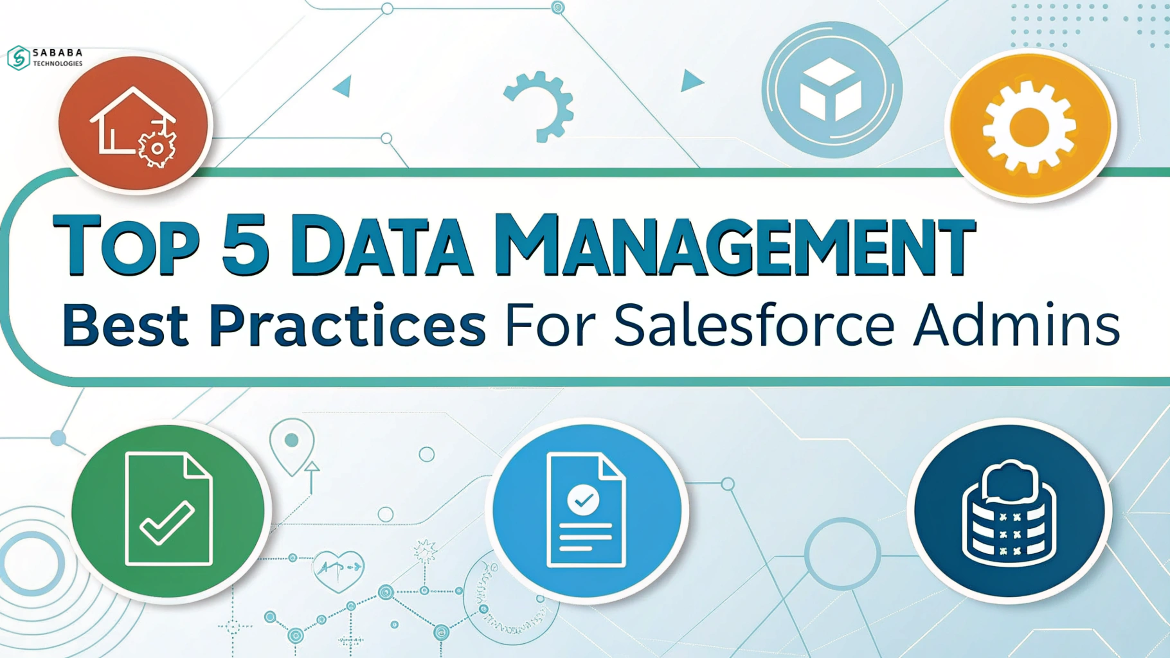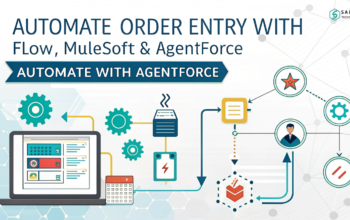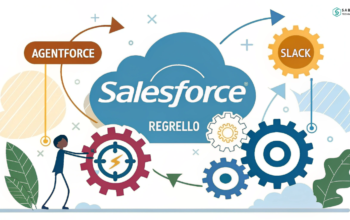Learn Salesforce data management best practices and improve data hygiene to keep your CRM clean, accurate, and easy to maintain.
Let’s be honest—data in Salesforce doesn’t manage itself. As a Salesforce admin, you sit at the intersection of technical setup and business strategy. That means you’re responsible not just for keeping the system running, but for making sure your organization’s data remains usable, accessible, and trustworthy.
Salesforce data management isn’t glamorous, but when it goes wrong, everyone feels it. Duplicate records pile up, reports lose their meaning, and user trust begins to fade. To avoid these pitfalls, let’s walk through five grounded, time-tested best practices that help maintain data integrity, improve system performance, and keep your sanity intact.
1. Establish a Strong Data Governance Framework
Before diving into day-to-day tactics, zoom out. Ask yourself: Who’s responsible for what?
A clear data governance framework sets the foundation for everything else. Define roles, assign accountability, and ensure every team member understands how data flows through Salesforce. Whether it’s naming conventions, field usage policies, or record ownership rules, consistency is key.
Moreover, a well-defined governance plan ensures that even as your organization grows, your Salesforce data management practices won’t fall apart.
2. Prioritize Data Hygiene Like It’s Customer Service
You wouldn’t send a messy invoice to a client, so why tolerate messy data internally?
Clean data drives accurate reports, reliable automation, and better decision-making. Yet, “data hygiene” often gets pushed to the back burner. Make it a habit, not a chore. Set up automated duplicate detection rules, encourage users to validate new entries, and regularly archive obsolete records.
In addition, tools like Salesforce Duplicate Management and third-party apps like DemandTools can simplify these tasks and save you hours of manual cleanup. Remember, good data hygiene isn’t optional—it’s the bloodstream of your Salesforce ecosystem.
3. Validation Rules for Salesforce Data Management
Have you ever pulled a report and found five different spellings of the same account name? That’s what happens when data entry lacks guardrails.
Use Salesforce validation rules to ensure that users enter data correctly from the start. Whether it’s forcing a phone number format or requiring certain fields based on record type, these small nudges prevent huge downstream headaches.
Plus, you can take it further by incorporating picklists, dependent fields, and record types to reduce ambiguity. Every well-placed rule brings you closer to bulletproof Salesforce data management.
4. Data Audits for Salesforce Management & Hygiene
Don’t wait for problems to bubble up—be proactive.
Regular data audits reveal issues you wouldn’t notice in your day-to-day workflow. For instance, is a certain field barely used? Is another one always blank? Are inactive users still assigned to key accounts?
Monthly or quarterly check-ins help spot these anomalies early. Use Salesforce reports or third-party audit tools to surface insights and adjust your practices accordingly. Over time, this approach turns reactive fixes into preventative strategy—making you a more strategic and trusted Salesforce admin.
5. User Training for Salesforce Data Management & Hygiene
Even with the best systems in place, people can (and will) make mistakes. That’s why user training remains one of the most underrated data management best practices.
Don’t stop at onboarding. Offer refreshers, lunch-and-learns, and bite-sized videos that remind users of proper data entry techniques. Tailor training by role—what a sales rep needs to know will differ from a customer support agent.
When users understand how their actions affect data quality, they’re more likely to stay compliant. And that creates a culture of ownership around Salesforce data management.
Final Thoughts
Managing data in Salesforce isn’t just a backend task—it’s a strategic responsibility. By implementing a thoughtful governance plan, keeping your data clean, enforcing rules, conducting audits, and nurturing your users, you lay the groundwork for long-term success.
These best practices don’t require fancy tools or massive budgets. They require intention, follow-through, and a commitment to quality. And when done right, they help you unlock the full power of Salesforce, allowing your entire organization to operate with greater clarity and confidence.
FAQs
1. What is Salesforce data management, and why does it matter?
Salesforce data management refers to the processes and tools used to ensure the accuracy, consistency, and security of your data in Salesforce. It’s essential for generating reliable reports, driving automation, and supporting user trust.
2. How often should I clean or audit my Salesforce data?
At minimum, conduct data audits quarterly. However, high-growth companies or those with frequent changes should consider monthly reviews for critical data fields.
3. What tools can help with Salesforce data hygiene?
Salesforce offers native tools like Duplicate Management and Validation Rules. You can also explore third-party apps such as DemandTools, Cloudingo, or Data Loader for advanced cleanup and bulk updates.
4. Can I automate parts of my Salesforce data management process?
Absolutely. Use automation tools like Flow, Process Builder, or third-party integrations to enforce rules, clean up records, and notify users about data inconsistencies.
5. How can I get users more engaged with data management?
Provide clear training, show how data impacts their daily work, and give positive feedback when users follow best practices. When people see the “why,” they care more about the “how.”
Feeling more like puzzles than solutions? That’s when Sababa steps in.
At Sababa Technologies, we’re not just consultants, we’re your tech-savvy sidekicks. Whether you’re wrestling with CRM chaos, dreaming of seamless automations, or just need a friendly expert to point you in the right direction… we’ve got your back.
Let’s turn your moments into “Aha, that’s genius!”
Chat with our team or shoot us a note at support@sababatechnologies.com. No robots, no jargon, No sales pitches —just real humans, smart solutions and high-fives.
P.S. First coffee’s on us if you mention this blog post!



